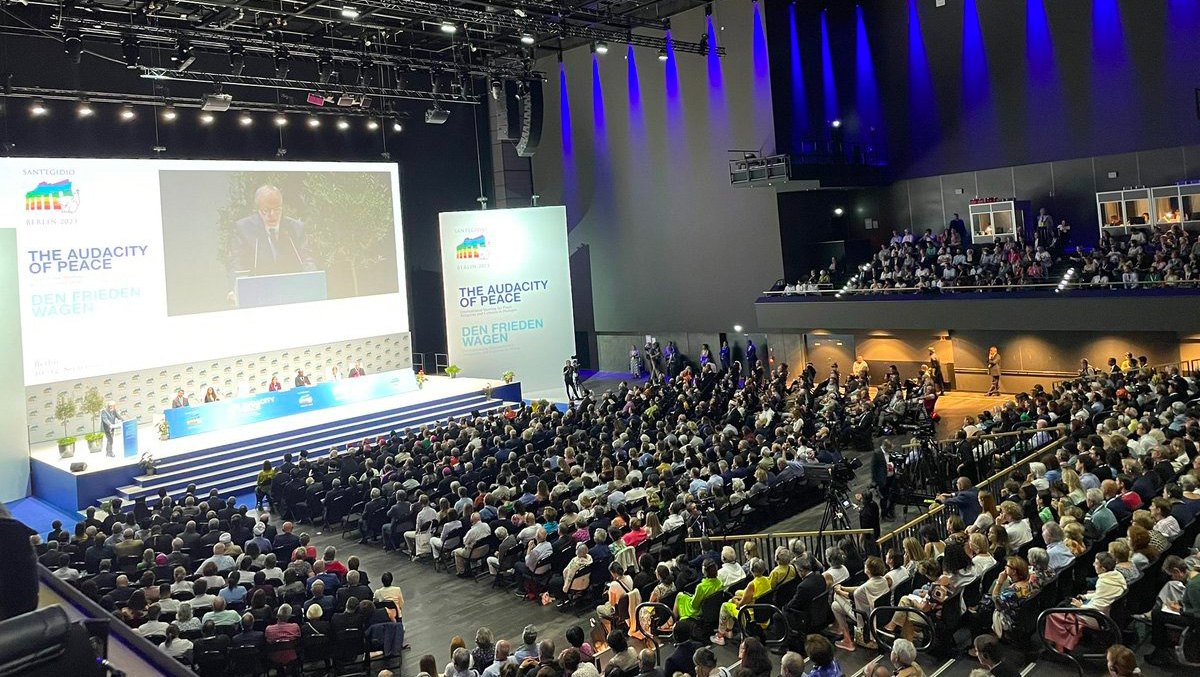
Societal collapse (also known as civilizational collapse) is the fall of a complex human society characterized by the loss of cultural identity and of social complexity as an adaptive system, the downfall of government, and the rise of violence. Possible causes of a societal collapse include natural catastrophe, war, pestilence, famine, economic collapse, population decline or overshoot, mass migration, and sabotage by rival civilizations. A collapsed society may revert to a more primitive state, be absorbed into a stronger society, or completely disappear.
According to this classic definition, social, economic and political collapse has not occurred in most parts of the world, but unfortunately, the situation of contemporary human beings even in the most prosperous and stable countries of the world in is such that loneliness and isolation seem to be a common and universal feeling. People no longer die of hunger and famine, life expectancy has improved and child mortality has almost disappeared, but people are still tired and fed up. The subject is not at all the kind of romantic narratives of helplessness, but it is about the pervasive feeling of loneliness and anxiety, broken relationships, anger and rebellion, feelings of humiliation and depression; The problems that have led to the greatest indictment of advanced societies: the bizarrely high rate of suicide
Economic growth is the main priority of modern politics, but the human struggle to obtain material security is only valuable if we know how we can reduce the human sufferings that continue in the state of economic prosperity, and maybe sometimes this state itself directly causes them. The current problems of thirty powerful countries or the richest countries, which are also called the first world, are the same problems that the entire human species is suffering from. In other words, if there is no plan for the basic human issues and the happy coexistence of humans in today's highly complicated world, it is certain that only focusing on material well-being and a dynamic economy will not solve the problems of the world.
The hope of the Enlightenment period and the industrial revolution was that with the rule of reason and the realization of development and welfare of all, human societies would achieve freedom, prosperity and peace, but the devastating First and Second World Wars and after that thousands of other wars around the world ,the destruction of the environment, the growth of fundamentalism, the founding flood of immigration and huge population displacements, the unemployment crisis and thousands of problems intertwined with these events showed that human life is more delicate, sensitive and complex than reductionist and one-dimensional programs can find a way to getting out of the crisis of living in today's complex and difficult world.
What we are facing in contemporary world or more clearly in the global village is huge technological changes, major changes in lifestyle, and fundamental changes in political relations. These fundamental changes have also caused human relations to undergo many changes at the global level, but the point is not only changing the face of the world and human relations and lifestyles, rather, the speed of these changes, especially in the field of technology, is such that it is no longer possible for any human being to coordinate with all aspects of these changes from moment to moment, and as a result, despite the progress made, the inability to coordinate with these developments and even the lack of enough time to think about its inevitable consequences has created countless difficult communicative issues that may seem trivial compared to the macro problems of the world, but they have created countless crises in everyday life and left countless human and spiritual damages.
In fact, the basic question is whether this globalization of changes has led to a more humanized world? Here, I intend to advance the discussion by presenting two examples of major changes in the modern world, and unprecedented in history, and raise the question that in order to have a happy collective life and achieve a world with more peace and tolerance and more stable security, What possibilities we have now that we have neglected.
These two examples are a short discussion about technology and the concept of equality and individuality.
First of all, it must be acknowledged that the answer to the mentioned question is very difficult, firstly because of the changing nature of the world we live in, a world that is no longer calm and stable due to complex technologies and vast imagination, as if the "old" and the "new is measured not in the scale of centuries but in the scale of "hours" and "minutes". Perhaps this situation can be likened to a constant resurrection, a situation that is constantly being built and destroyed in order to rise to a new state that is the result of flourishing all the human potential talents and realizing their limitless imagination for overcoming the walls that the reality of time, space and material world has surrounded them. From this point of view, it can be claimed that these changes have become the basis for more freedom and creativity, consequently the realization of countless human talents is a facet of making the world more humanized.
But it seems that what is clear in the world of ideas and concepts; If realized and objectified, they can move in different and ambiguous directions and lead to complications and even dead ends that have unpredictable and may be undesirable effects on the spiritual and material life of human beings. Optimistically we would hope that the intention of the idea makers, philosophers and scientists in all fields of science, technology and humanities is to contribute to the improvement and welfare of the human being and to provide more opportunities to experience the life time, But perhaps we can all agree that even the best human intentions may move in a completely different direction from the creator's intention. For example, the transformation in communication methods, including smart phones, even if it was done with the best intentions, including the more effective communications among people, which also has such a function, but on the other hand, it has caused people to be addicted to the virtual reality and ignore each other's presence.
Although it was thought that communication technologies will reinforce the empathy quality of human co-existence; that the free flow of information will lead to more justice and equality at the world level, but in practice, the possibility of manipulating reality through advanced technologies, including recently artificial intelligence, can be Incite widespread apathy at the level of human societies that, instead of becoming more active, turn the majority into passive spectators of events, with a sense of isolation and ineffectiveness. It seems that what was supposed to lead to the feeling of more agency in humans, at the same time, for various reasons, causes a decrease in agency and more passivity.
On the other hand, in the seemingly innocent ideas’ world, concepts such as "individualism" and "equality", which was the universal idea of the post-enlightenment which changed the face of the world, ultimately lead not to democracy but to the public weakness against the institutions of power.
Emphasis on individuality, which became the common coin of the era and public demand from the middle of the 19th century, paradoxically weakened the function of supportive institutions such as family and religion and imposed a deep sense of loneliness on human societies despite all the advances in health, education and welfare levels. Now the question is why the concept of individuality led to the pervasive feeling of loneliness and how the feeling of loneliness has led to the psychological collapse of human societies and riots? Why do people in democratic societies feel insecure and dissatisfied despite achieving individuality and equality?
Actually the process of globalization, which is impossible without the ideas of equality and individuality and the possibilities provided by technology, has led to the loss of identity distinctions caused by family, religion, and culture. The globalization has weakened the theoretical and practical foundations of the historical, cultural and hereditary differences and the lifestyle of most societies has become similar.
Some thinkers like Tocqueville believed that such societies fundamentally change human destiny in such a way that a large number of people find the possibility of self-actualization due to the freedom and prosperity they get, but some other thinkers like Edmund Burke (1729-97), believed that such societies would be disintegrated due to the elimination of differences.
What is clear in contemporary world relations is that despite the realization of more equality among members of the society, the people have collectively become weaker, more isolated and more helpless, and despite the promises of the democratic society for the realization of democracy, the people in practice have less power and influence to determine their own destiny.
This weakening of people in the name of democracy is one of the reasons for weakening the collective human life and respectful coexistence among them. In fact, on the one hand, by strengthening individualism, and on the other hand, by eliminating people in various ways by weakening Intermediary institutions such as family, religion, the course of spiritual collapse of human societies and the feeling of loneliness and Human isolation has intensified.
In my opinion, the healing medicine that can realize the possibility of coexistence again in the context of scientific and technical achievements is to return to a kind of religious faith and adhere to "moral convictions" that are rooted in the teachings of divine religions.
In other words, if there is no religious faith and moral commitment, individuality, the basic element of modern societies; weakens the basic teaching of religions, that is, "respect for the neighbor/other" and turns into a kind of unbridled selfishness that makes impossible any kind of coexistence based on love.
Connection to the divine world and belief in the God, can give people double strength.
In the end, I would like to thank the St. Egidio Institute, which helps to hold the interreligious dialogues every year.
I also consider it necessary to emphasize that it is obligatory for us to oppose any kind of religious extremism such as ISIS fundamentalists and any kind of religious phobia such as the insults that have recently taken place in the form of burning the Koran or disrespecting other holy books.
